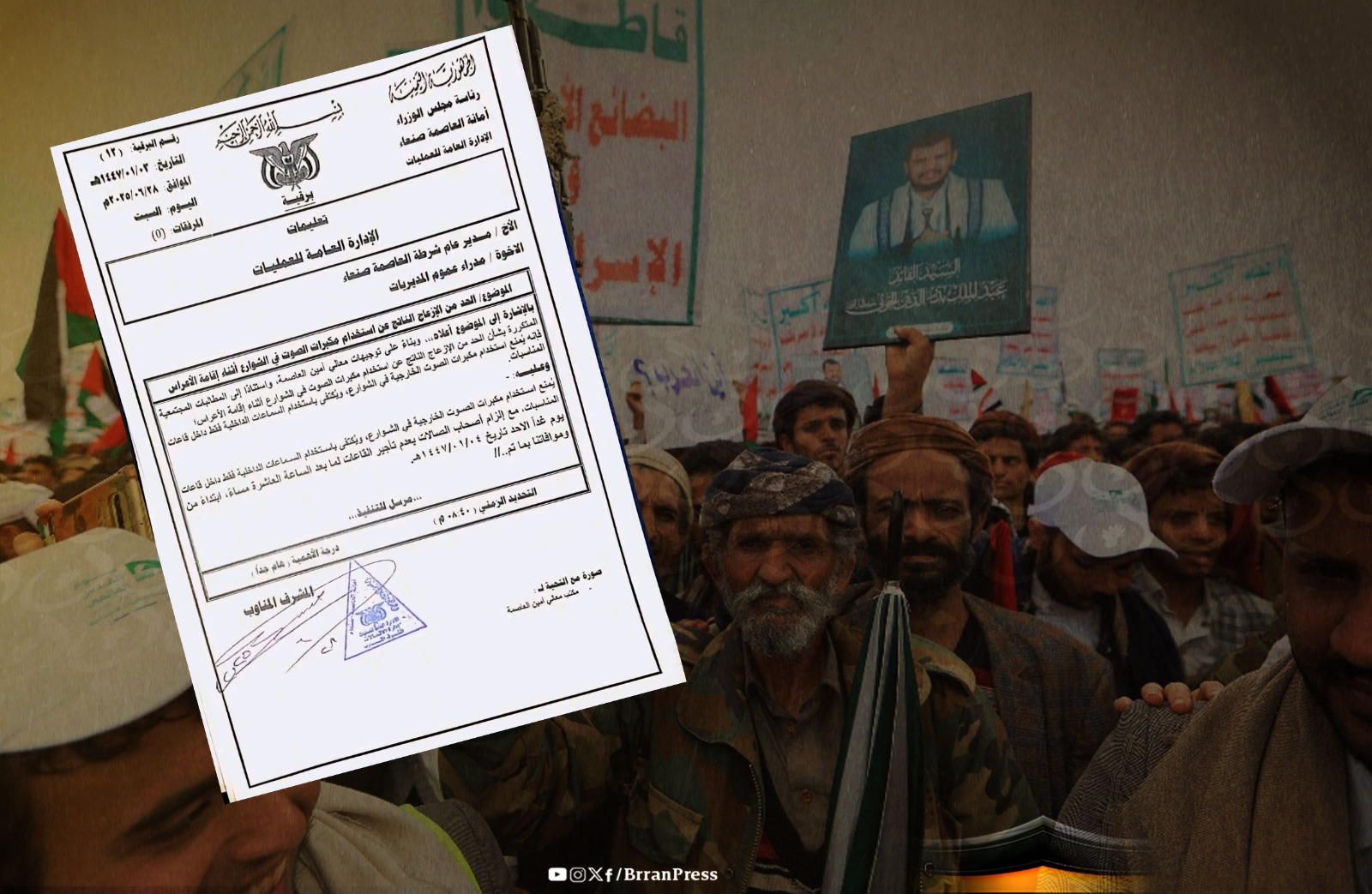


Barran Press
Houthis in the Yemeni capital of Sanaa have imposed a strict 10:00 PM curfew on wedding halls, the latest move in an escalating series of restrictions by the Iran-backed group on public life in areas under its control.
A directive issued by the Houthi-appointed Mayor's Office on June 28, 2025, justified the new curfew by citing "increasing complaints from citizens due to loud noises in the streets." The new regulations, circulated to wedding venue owners, also forbid the use of external loudspeakers, permitting only internal sound systems. Houthi police and general operations departments are tasked with enforcing the new rules.
This isn't the first time the Houthi group, which controls large swathes of northern Yemen, has cracked down on public gatherings. Similar restrictions have been previously enforced in Sanaa and other Houthi-held provinces. In the past, the group has reportedly detained wedding hall owners and popular artists for months for failing to comply with their directives.
The latest measures follow even stricter impositions made in October 2024 concerning women's weddings and celebrations, including those held in traditional tents. At that time, the Houthis mandated that women's weddings in halls and tents conclude by 8:00 PM, under the pretext of "preserving religion, morals, customs, and the authentic faith identity."
A directive from Houthi leader Jabran Ghober, the group's appointed Undersecretary for Sanaa Governorate and Director of the Hamdan District, also banned loudspeakers and open windows for women's events. Furthermore, it prohibited grooms from entering halls to collect their brides, banned photography of the bride inside venues, and forbade bringing in singers to perform at women's weddings. That directive, widely distributed to venue owners and residents, threatened fines of up to 500,000 Yemeni Riyals (approximately $2,000 USD) for violations.